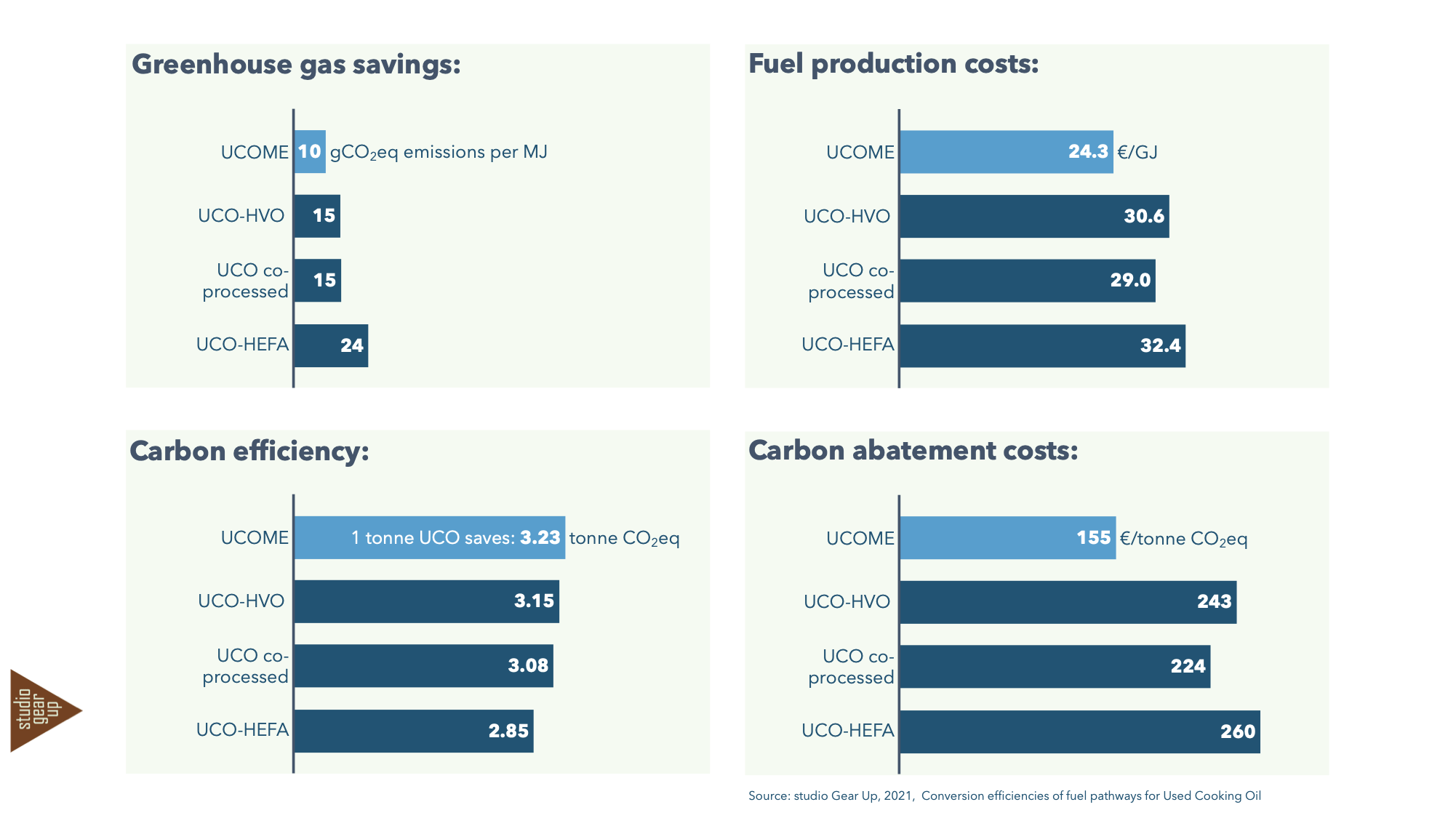For: EWABA (European Waste-to-Advanced Biofuels Association) and MVaK (German Mittelstandsverband abfallbasierter Kraftstoffe)
[November 2020 – February 2021]
studio Gear Up analysed for EWABA and MVaK the techno-economic and greenhouse gas emission impacts of four biofuel pathways based on used cooking oil (UCO). Many members of EWABA and MVaK use UCO as their main feedstock. UCO is a waste-based vegetable oil, collected from food manufacturers, restaurants, catering facilities and kitchens in schools, hospitals or households. It is used to produce several types of renewable and sustainable fuels, through different pathways. EWABA and MVaK wanted to understand how the four main current pathways perform in terms of several economic and environmental impacts.
studio Gear Up assessed the benefits of four renewable fuel pathways that use UCO as a feedstock:
- UCOME (known as “biodiesel”),
- UCO-HVO (“renewable diesel”),
- UCO co-processed with fossil oil, and
- UCO-HEFA (a “Sustainable Aviation Fuel”).
The assessment involves detailed techno-economic analyses on basis of industry data and literature.
Results

The production and application of UCOME in road transport provides the highest carbon savings against the lowest costs, due to the relatively simple process technology and high feedstock efficiency, the study shows. And since the UCOME conversion installations already exist, these savings can be achieved without additional investments. On the other hand, application of UCO in HEFA for aviation is costly.
This insight is important for policy makers who currently prefer to deploy UCO in aviation where it achieves considerably less climate savings per given tonne of UCO. At the same time, UCOME producers should understand that over time electrification will reduce the need for renewable fuels in the road sector. Policy makers and industry should understand which UCO pathway is performing best at each moment in time, to optimise climate emission reduction.
The complete report is found here.



